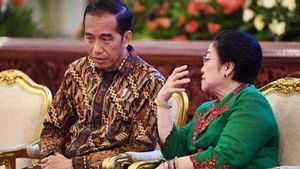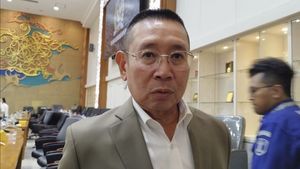The Indonesian government is waging war against online gambling, and President Prabowo Subianto has reiterated his commitment to eradicating this illegal practice. In recent years, the Ministry of Communication and Informatics (Kominfo) or now called Communication and Digital (Komdigi) has closed more than 2.1 million online gambling sites. However, despite these efforts, the problem of online gambling has not been resolved. The Financial Transaction Reports and Analysis Center (PPATK) recorded 168 million online gambling transactions with a total value of IDR 327 trillion throughout 2023. In fact, since 2017, the turnover of online gambling funds is estimated to have reached IDR 517 trillion.
Based on a Populix survey, 84% of Indonesian internet users have seen online gambling advertisements in the last six months, and 63% of them see similar advertisements every time they access the internet. Hadi Tjahjanto, when he was the Coordinating Minister for Political, Legal and Security Affairs, revealed that the government had mapped around 2.37 million online gambling victims in Indonesia, including 2% of whom were children under the age of 10.
The impact of online gambling is very damaging. The victims of online gambling are not only players, but also their families and friends. Many people are trapped in serious financial problems due to gambling addiction. Tragic stories have emerged where many people are forced to go into debt or sell valuables to satisfy their gambling desires. Some have even been reported to be depressed and have attempted suicide due to the huge losses they have experienced.
Ironically, in the effort to eradicate online gambling, the involvement of certain employees at the Ministry of Communication and Digital was found. Public trust in the government has been shaken again because they should be at the forefront of the fight against online gambling, instead of being involved in this destructive practice.
Eradicating online gambling in Indonesia faces a number of major challenges. First, technological limitations cause new sites to emerge quickly after the old ones are closed. Second, the law is still complex and limited to national jurisdiction, while online gambling often operates abroad. Without adequate technology, the closure of online gambling sites is only temporary.
Eradicating online gambling requires a more holistic approach. A special task force is needed with full authority to supervise and conduct comprehensive audits of related agencies. Employees in strategic positions must be supervised more closely. Don't be tempted because it involves big money. Any indication of involvement of individuals must be dealt with firmly without compromise. Transparency in legal action also needs to be strengthened in order to provide a clear deterrent effect.
Online gambling sites often use sophisticated encryption systems that make them difficult to track. Many online gambling operators operating abroad exploit loopholes in international law, which is a major obstacle to eradication. This makes efforts to eradicate online gambling feel left behind.
The solution to this problem is to strengthen technology that can automatically and quickly close online gambling sites. Because these online gambling sites seem to die one by one and another grows. The government also needs to strengthen internal supervision to ensure that no individuals are involved in illegal practices. In addition, the public must be given more intensive education about the dangers of online gambling, especially children who are potential victims. Awareness campaigns that highlight the tragic stories of online gambling victims will help people better understand the risks they face.
Eradicating online gambling will only be successful if there is a strong commitment from the government and related agencies. Honesty, transparency, and firm action must be the guidelines in the fight against online gambling. If President Prabowo Subianto is serious about eradicating online gambling, the first step that must be taken is to clean up the internal agencies involved and strengthen synergy between agencies. Without this step, the fight against online gambling will continue to be hampered.
The English, Chinese, Japanese, Arabic, and French versions are automatically generated by the AI. So there may still be inaccuracies in translating, please always see Indonesian as our main language. (system supported by DigitalSiber.id)












